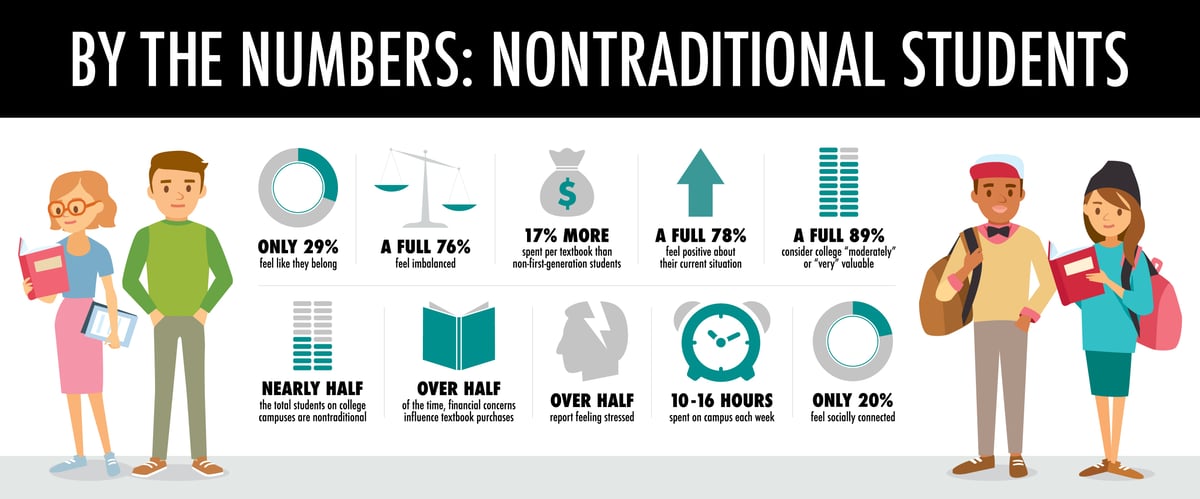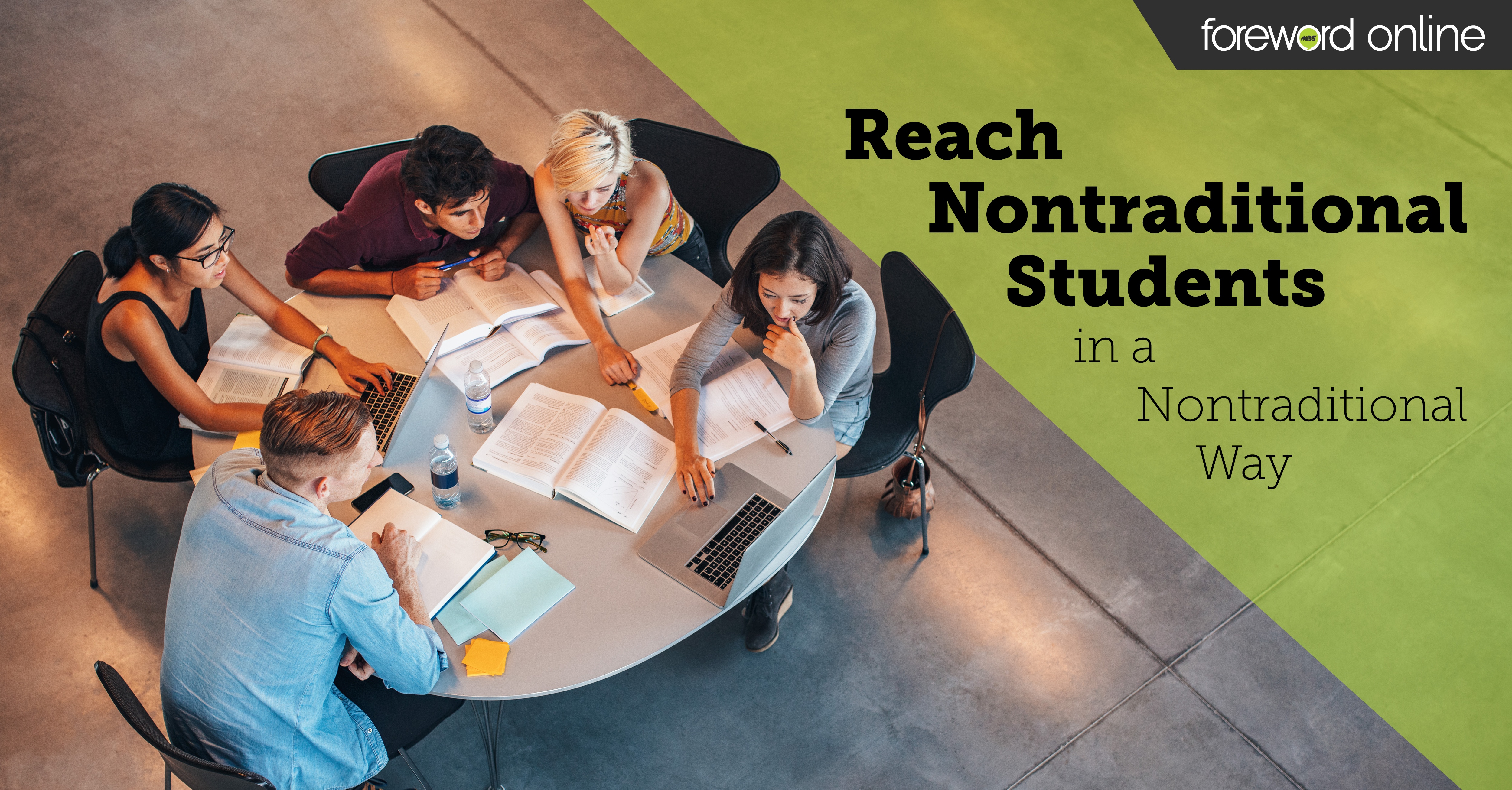Let’s pretend I’m a nontraditional student. It may be hard to picture me, because nontraditional students come from a variety of backgrounds: we are veterans just back from Afghanistan, professionals over 25 returning to school because we want to change careers or because we’re looking for advancement, and first-generation students fresh out of high school. We are also those enrolled primarily in online classes and holders of GEDs.
 With all these differences, it’s hard to believe we have anything in common, but surveys show we do.
With all these differences, it’s hard to believe we have anything in common, but surveys show we do.
Assume I’m some combination of these things: a parent, a veteran and a person working 35 hours a week. I take one course online and two on campus. Let’s add that I’m first-generation. Wow. It’s not easy to catch my attention — and it may be hard to get to know me —because I’m juggling so many responsibilities.
However difficult it may seem, it’s important you do get know me. As a nontraditional student, I am among those who comprise nearly half the total students on college campuses, according to the Lumina Foundation. According to a Barnes & Noble College survey Achieving Success for Nontraditional Students, enrollment of my ilk is projected to increase twice as fast as that of traditional students between 2012 and 2022.
Nontraditional is becoming a campus tradition.
Here are ten facts you need to know about me
- I have a lot to offer. My background brings maturity, work experience and life wisdom to a campus. It’s important to show you believe my non-academic experience has For instance, I can be a wise bargain-hunter.
- I have big dreams, and I’m very optimistic. 89% of non-traditional students say they consider college “moderately” or “very” valuable and 78% of us report feeling positive about our current situation. Overall, we’re even more optimistic about our futures than traditional students.
- I participate more in class, and I’m less afraid of peer criticism than traditional students. Nontraditional students have a high level of intrinsic motivation and interest. Teachers appreciate my willingness to be the only student seated in the front row.
- I don’t feel like I belong. Even though nontraditional students are becoming the campus mainstream, only 29% of us say we feel like we belong, and only 20% of us report feeling socially connected. Planning special events at your store with us in mind can go a long way toward helping us feel more welcome.
- I’m more likely to become an at-risk student. An at-risk student has a high chance of dropping out before graduating. Neither my age, my gender, nor my financial background influences whether I end up at risk, according to another Barnes & Noble College study called “Supporting Nontraditional At-Risk Students.” Rather, at-risk nontraditional students have a shared sense of alienation. Again, think about reaching out with store events — or offering services like childcare that nontraditional students often need.
- I’m stressed out. A full 76% of us report feeling imbalanced, and over half of us report feeling stressed.
- I need clarity and transparency when it comes to course materials. Financial concerns play a role in my decisions about textbooks more than 50% of the time, but even my keen sensitivity to finances doesn’t help me save money on course materials. A National Association of College Stores study referenced in the Chronical of Higher Education shows first-generation students spend 17% more per textbook than non-first-generation students. That’s not fair. If I understood all the options — new, used, rental, digital — I might make better choices and feel more welcome.
- I don’t spend as much time on campus as traditional students. I’m on campus about sixteen hours a week. If I fall into the category of an at-risk student, I spend even less time on campus: 10 hours a week. You need to find creative ways to keep me tuned into bookstore events, and you need to learn my communication preferences. Try SMS and social media.
- If I fall into the at-risk category, I am likely to say I had a bad experience with student services. Maybe I went to the counseling center and ended up feeling like some kind of Or maybe I tried career services and left because it seemed like I knew more about job-hunting than the counselor. Something about my experience made me feel even more isolated and disconnected than I did before I went. Customer service really makes a difference in my college success.
- I have better coping skills than traditional students. Nontraditional students are more likely to use problem-solving skills when they feel overwhelmed. Traditional students tend to react emotionally when life gets tough. I do something constructive like make a list of tasks to accomplish and get to work. I might make an excellent employee.
See, I told you I have a lot to offer.





